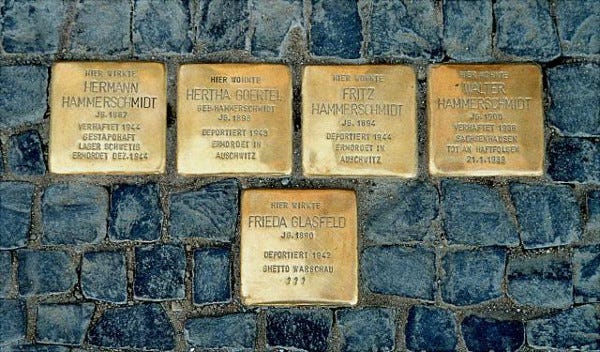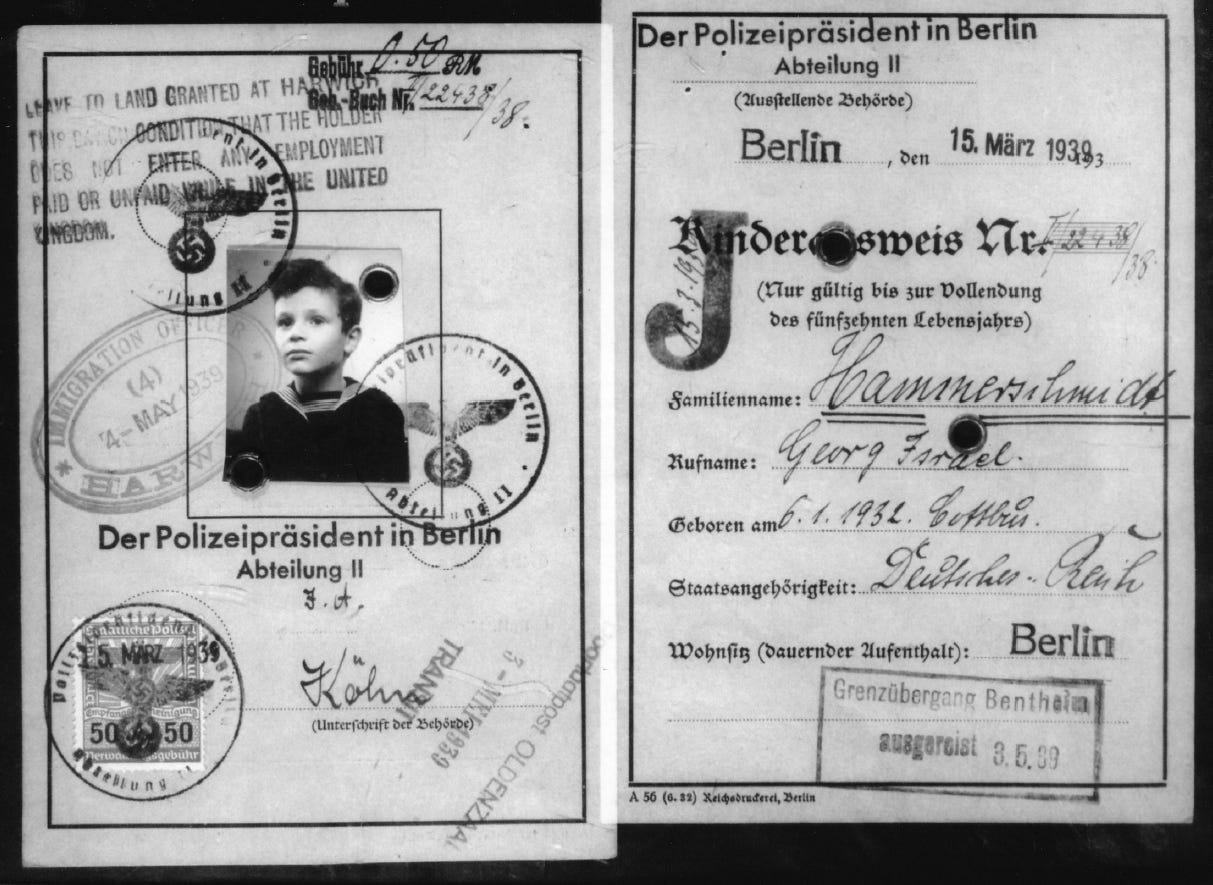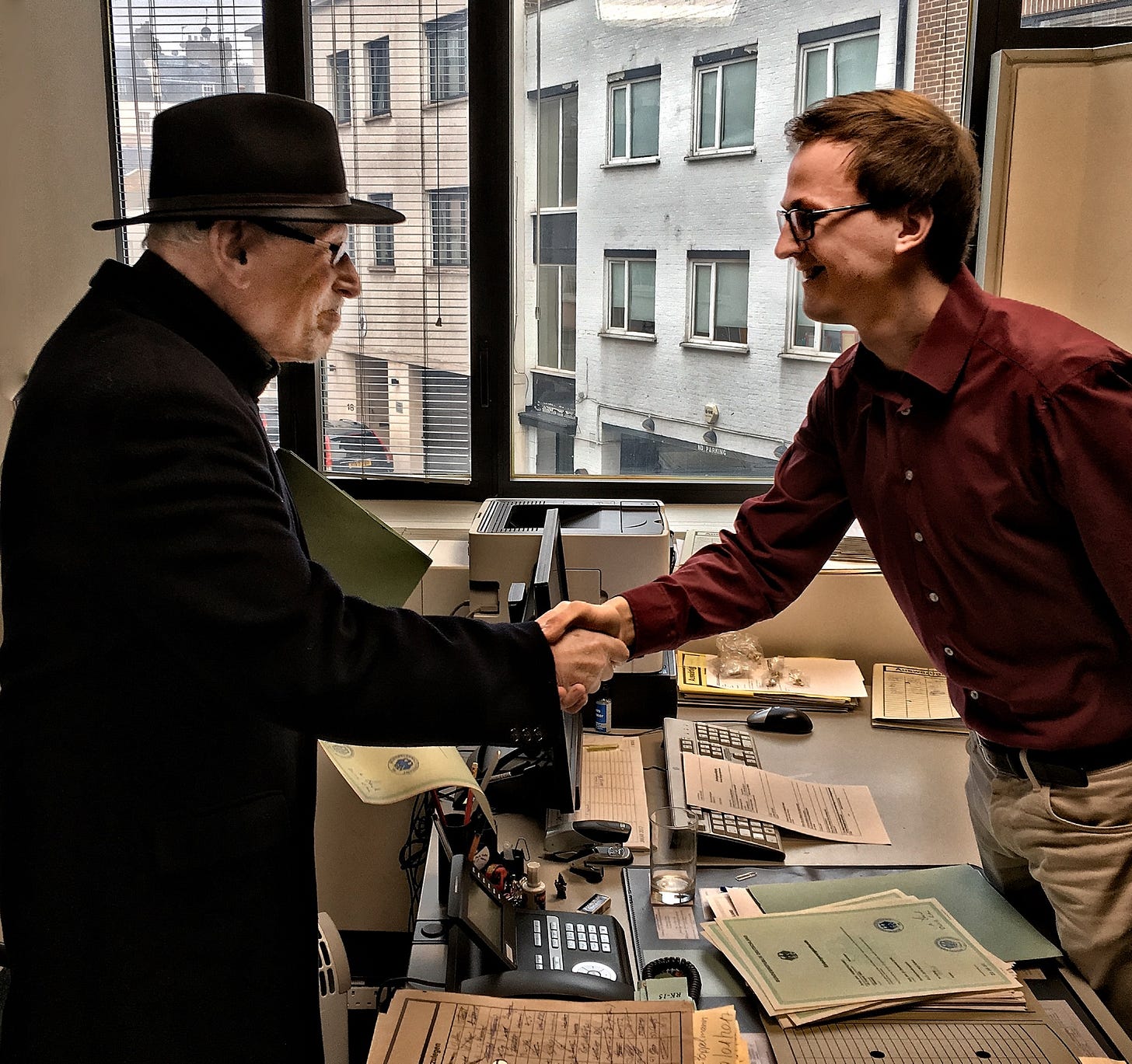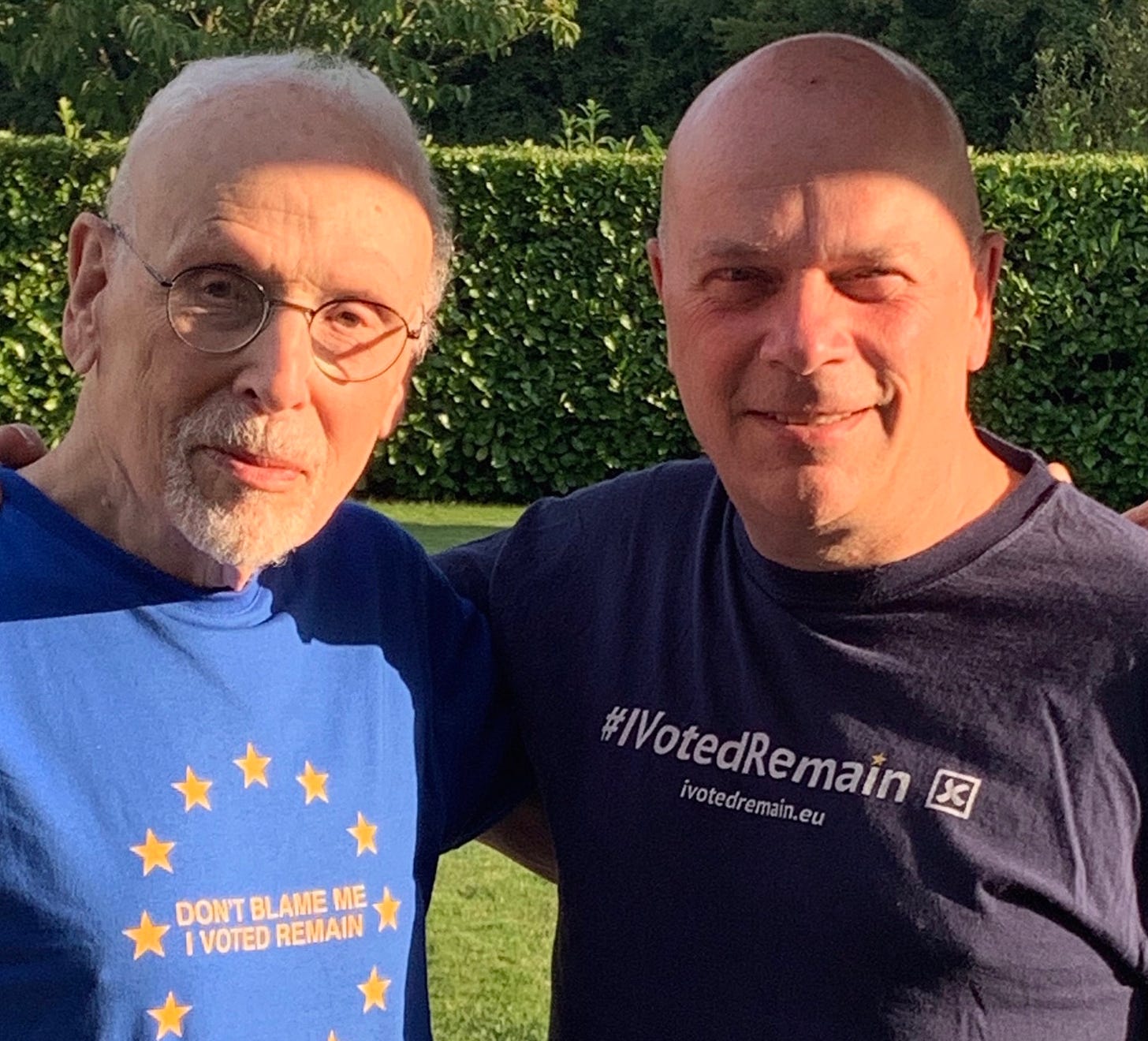'I was very lucky. If I hadn't of left I'd be dead'
On Holocaust Memorial Day Kindertransport refugee George Hammerschmidt of Brixworth tells his story
We publish an original feature or new story each day. Please SIGN UP above to receive our free daily newsletter straight to your inbox
By Sarah Ward
George Hammerschmidt cannot remember his early years growing up in Germany. He thinks it’s possible he’s blocked it out. But he can vaguely recall arriving at a London train station in May 1939 with his elder sister Ursula and being met there by Kathleen Hudson whom, with her husband Laurie, were to become their guardians.
George was only seven and one of tens of thousands of Jewish children from across Hitler’s Germany, and Nazi-occupied Czechoslovakia, Austria and Poland who were taken to safety by the Kindertransport (children’s transport) rescue effort.
The mass evacuation that happened in the nine months to the outbreak of the World War Two in September 1939 was put into place after the violent Kristallnacht in November 1938 in which 91 Jews were murdered. Thousands were arrested and hundreds of synagogues, Jewish owned shops and businesses were destroyed by Germany’s Nazi government. After a discussion in the House of Commons the British Government decided to support and encourage the asylum of young at-risk Jewish children and the BBC Home service carried an appeal for foster carers to look after incoming child refugees. The Hudson family was one of the hundreds who stepped forward.
After travelling by rail across Europe, George and his sister were taken to live at the Hudson’s Lake District home and attended Ulverston Grammar School where Mr Hudson was a school master.
“We were anglicised very quickly,’ he says. “Because we were at war with Germany, my own feeling was that I wanted to be as English as I could be, as quickly as I could be.
“I learned English very quickly and did well at school. In a way I didn’t have a really difficult time. I just got on with life.
“I feel very lucky to have gone to such a good home and it was a very pleasant part of the country to be in. If I hadn’t had the good fortune to be evacuated to England I would be dead,” he says matter of factly.
Not a lover of sports, George did however take to fell walking and would spend hours crossing the area’s beautiful hilly landscape.
But while George and his sister were safe in England it was another story for his persecuted parents Aniela and Hans, from whom he had been sent away to have a chance of survival. They mercifully escaped the Nazi’s concentration camps and the gas chambers that killed more than five million Jews, but other members of the family did not. George’s uncles, aunts and a young cousin were among those murdered in the holocaust.

A Jewish life in wartime Berlin
Before the war the Hammerschmidt family had lived in Cottbus, a city in north east German, 100km from Berlin. His father was a successful lawyer and worked in the family firm with his brother and father. But like most Jews he was struck off from his profession in 1933 and demoted to a clerk. Due to local boycotts the company went under and in 1936 the family sold their home at a huge loss and moved to Berlin. Life was becoming increasingly intolerable for the Jewish community. It was against this backdrop in 1938 that the Hammerschmidts decided to send their children over to England to safety.
(George knows little of how it came to be that he was a Kindertransport child and cannot remember the separation from his parents.)
Just months before war broke out Hans managed to get a visa to Ecuador but two weeks before their planned departure in May 1939 they were told it was no longer valid. Another visa was granted in 1941, but just weeks before their passage the Nazis decided nobody under the age of 45 could leave the country. Aniela was 38 and so had to stay, but persuaded Hans to leave without her.
“I was fully aware that we would both be lost if we both stayed behind,” she wrote in 1953 in a harrowing biographical account of this period of her life.
In 1941 she escaped transportation east to the concentration camps after the intervention of a German friend, but a number of her husband’s family were taken to Auschwitz and killed. She lived in fear in a tiny room and existed on meagre rations.
“I suffered night and day from the ‘bell’: fear that the Gestapo might call to arrest me,” she wrote.
“In order to get a night’s sleep I went for the weekend to my good friends the Ransohoffs in February 1943. When I went to work on Monday morning my colleagues thought they’d seen a ghost. I learned that on the Sunday the Landhausstrasse had been cleared of Jews and that my room had been sealed off.”
After escaping her fate Aniela went into hiding in the home of friends, but after fearing she would put them in danger she moved in with a shoemaker’s family in a town outside the city and then lived a furtive existence between the two places.
“ . . when there were air raids, I just walked the streets. Life was hell and I rather felt like a deer being chased by wolves. So much that I sometimes thought it would be easier to hand myself into the authorities,” she wrote.
Aniela managed to survive until the Russians arrived in Berlin in April 1945, with the Germans surrendering to the Allies a week after Hitler’s suicide in May 1945. But she was hugely scarred by her experience, growing prematurely old and suffering from nervous depression.
Family reunion
After the Nazis were defeated George and his sister were reunited with his mother in England 1947 after an MP arranged for her to come to the country for a few months before joining his father in South America.
“That was strange because I didn’t speak German any longer, but she was a good linguist and spoke English very well so we could communicate.
“When my father came to England in 1957, which was just in time for my wedding, even talking with him was nearly impossible because he could not talk English and I could not talk German. I felt particularly sorry for him. I think it must have been very tough for him.
“I wish I had been able to communicate but I find it very difficult to describe the feelings I have about it.
“In a way we were strangers really. I was far too keen to emphasise my Englishness. I wasn’t ashamed, but I didn’t feel German anymore, mainly because I did not speak the language. I was now mixing entirely with English people and so it was just a different world.”
His parents went back to Germany, visiting England every year, and George began his own married life.
After his grammar school education George had done national service in the RAF and then went to Manchester University to study Physics graduating in the early 1950s. He moved to London to work as a textile technician and met his wife Phyllida, at a company party, as her father was a colleague.
The couple had two sons, Simon and Mark and moved across the home counties before settling in Brixworth in the 1980s. They set up their own picture framing business and had an art gallery in Northampton. George also took part in the local amateur dramatics scene and directed several plays.
Looking back on his childhood today George, 89, is sanguine about his experience.
“There is no point in life with being bitter. It is not going to bring my uncles and aunts back, it is not going to bring my parents back, it is not going to give my father his job back. And so I’m just so very glad I did not have to go through the horrible side effects. I was very, very fortunate.”
But the rise of fascism in the West is something that does anger him.
“The one thing I think is really essential is you don’t enter another phase which repeats what happened in Germany. That would be absolutely disastrous and there is still quite a lot of fascism in Europe now. I think what sits around that is terrible. Germany tried very hard to sort of put what had happened in 1932 behind them and thank goodness they did. But I’m not saying we are free of the dangers.”
On the rise of white nationalism in America he says, “It makes me absolutely sick to death. Thank God we’ve got rid of Trump.”
A few years ago the German government asked George if he would like to regain his German nationality and he took it, in part because he was so cross about Britain’s impending departure from Europe. He now proudly has dual nationality.
Next generation
George’s son Simon is determined to visit Auschwitz in Poland like his father has done to remember his relatives, but has not yet felt ready to do so. Having not been brought up with Jewish customs or within Judaism he says what resonates most with him is being the descendant of a family persecuted for whom they were born as.
He says the experience of his family and ancestors have ‘made me constantly conscious of social injustice.’
“Every time I see (pictures of) George Floyd’s neck being knelt on, I think this is history repeating itself. Nobody is born hating Jews or black people, that is something they learn. But we have to make sure the holocaust is remembered so it does not happen again.”
The theme for this year’s Holocaust Memorial Day is Be the Light in the Darkness. It hopes to encourage everyone to reflect on the depths humanity can sink to, but also the ways individuals and communities resisted that darkness to ‘be the light’ before, during and after genocide.




A wonderful man and a poignant story. Robert Rinder also did a documentary about his journey - whatever complaints we may have about life at the moment..we just don't have the first idea. Thank you George.